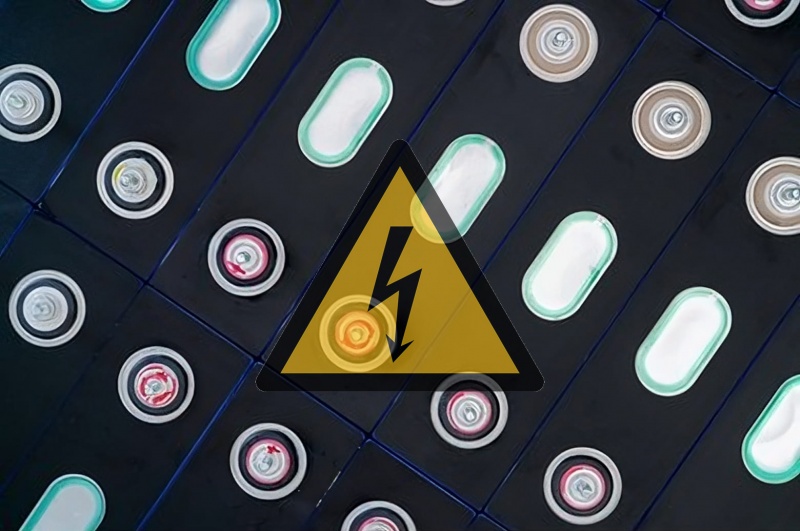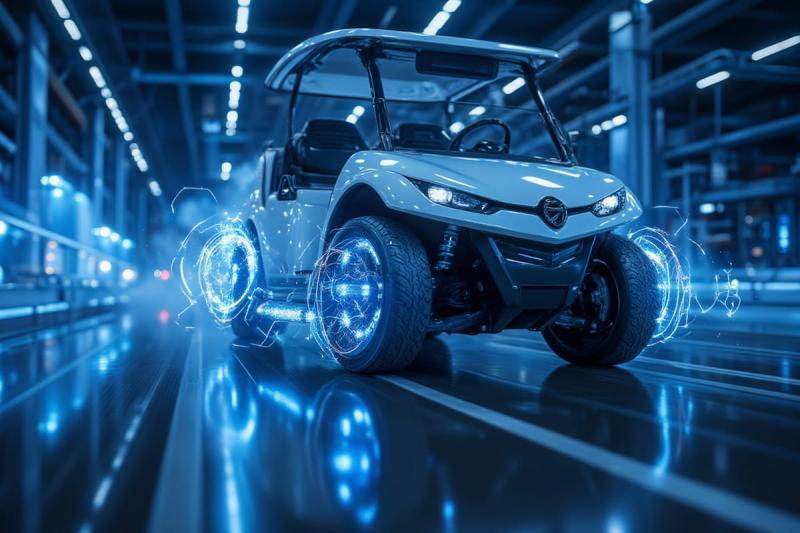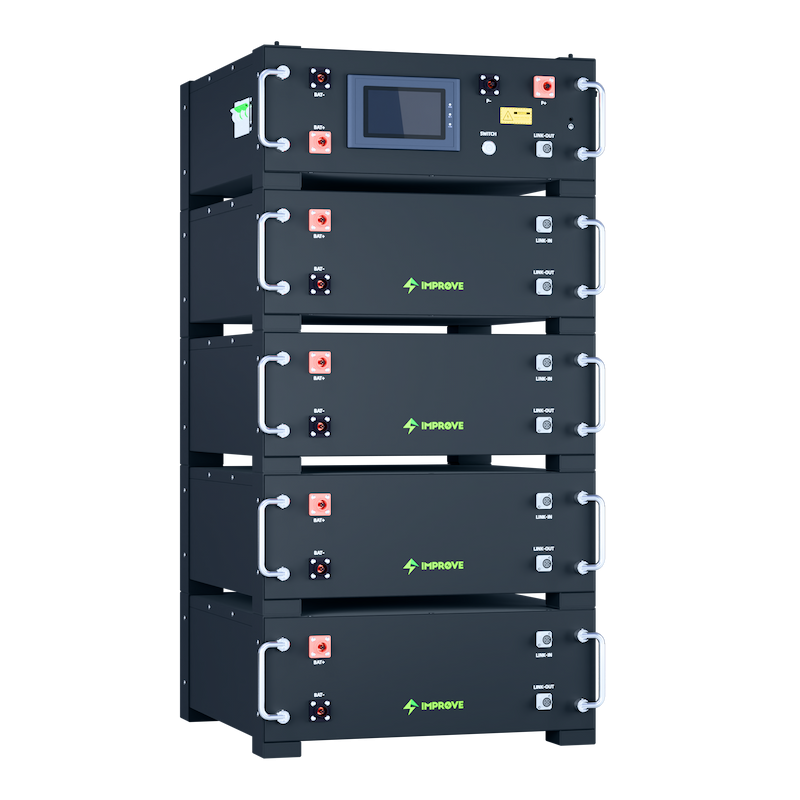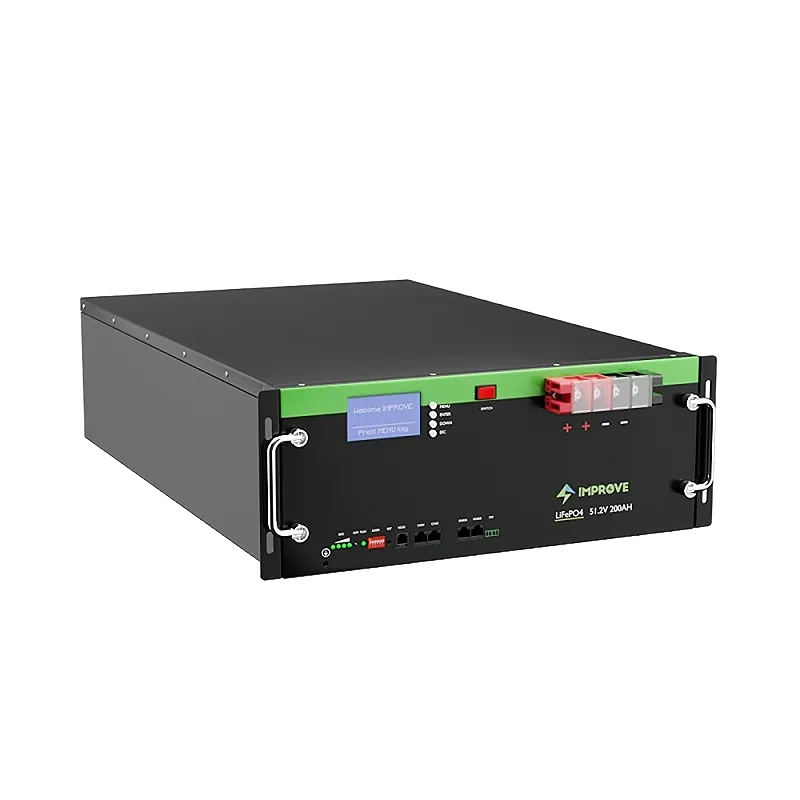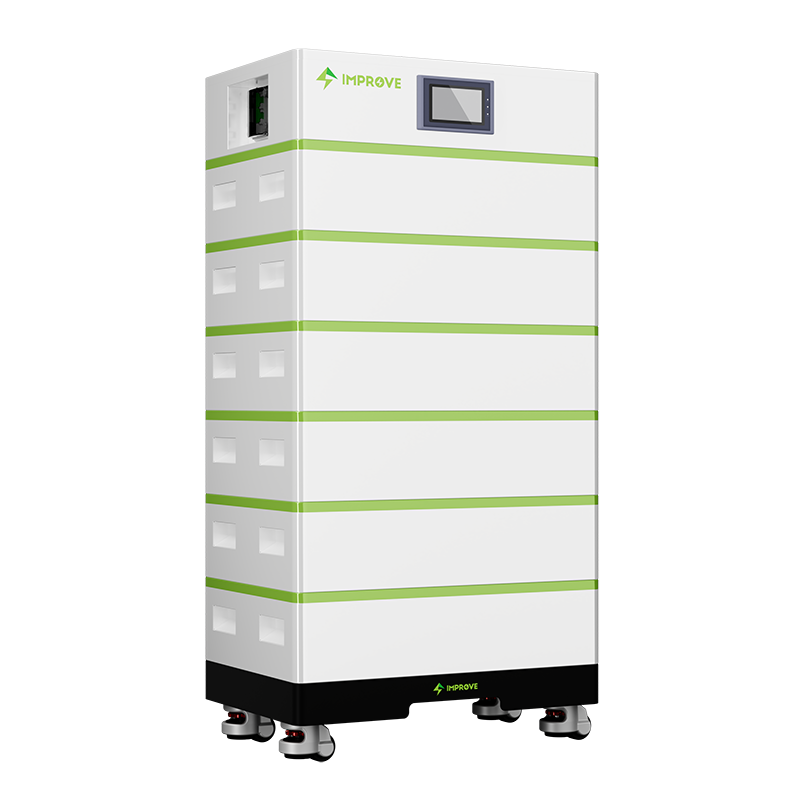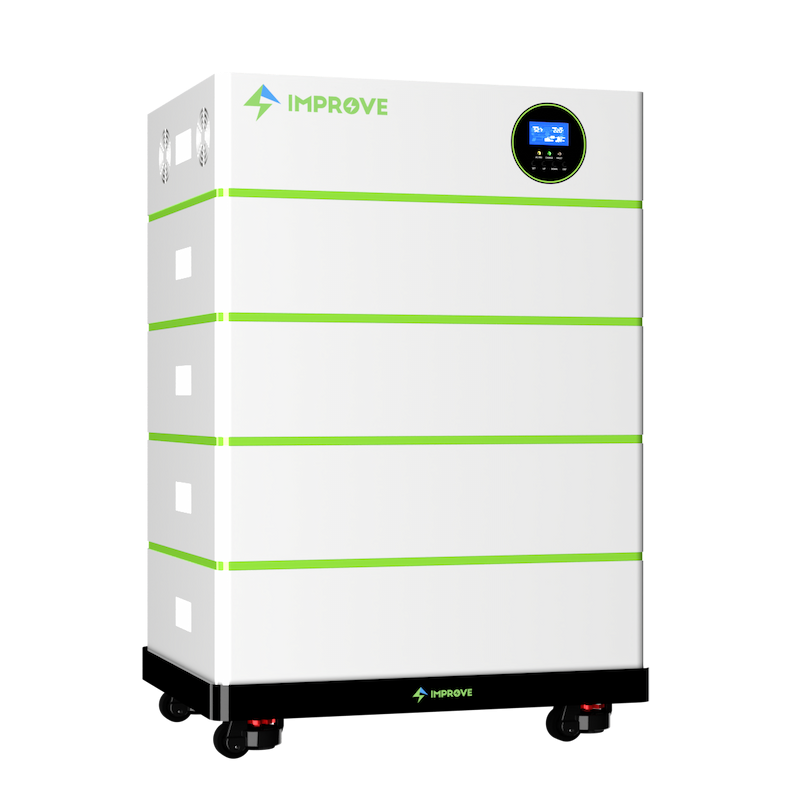Battery systems are a great addition to any Solar PV or Renewable energy system. Not only do they allow you to store your energy to use when the sun isn’t shining, but they also allow you to buy energy from the grid to store when the cost per kWh is at it’s lowest. But a common question we get asked is which type of battery is the best.
Many of our Solar PV systems come with either high voltage or low voltage batteries, however what does that mean exactly? Today we will look at the difference between HV and LV batteries and which option is right for you.
WHAT IS VOLTAGE?
Voltage also known as electric potential difference, or electric pressure, is the difference in charge between two points in an electric field. The bigger the difference in energy between these two points the bigger the voltage. The amount of voltage is measured in volts (V), derived from the Italian physicist Alessandro Volta who is credited as the inventor of the electric battery.
Higher voltages result in more electricity flow to an electron device. However, electronic devices are designed to operate at certain voltages. Too much voltage can damage the circuits, but too low of a voltage can hinder performance.
THE VOLTAGE ANALOGY
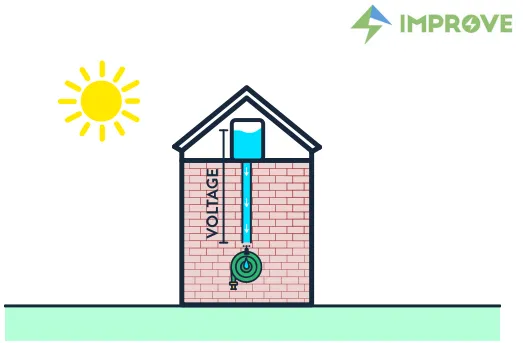
When describing voltage, current, and resistance, a common analogy is a water tank sitting in a loft, connected to an outside hose. In this analogy, charge is represented by the amount of water in the tank, voltage is represented by the water pressure at the end of the hose, and current is represented by the water flow.
The more water in the tank, the higher the charge and voltage. If the tank is full, when the hose is initially switched on there is a burst of water due to the higher pressure at the end of the hose, this then decreases as the volume of water in the tank goes down. If we think of the tank as a solar battery, that stores and releases your excess solar energy and if we drain our tank, or use a certain amount of energy, the pressure created at the end of the hose goes down, as the voltage decreases. This also results in a decrease of charge for your battery as there is now less water in your tank. As the amount of water decreases there is less pressure and flow of water through the hose which brings us to current. Make sense yet?
LOW VOLTAGE BATTERIES
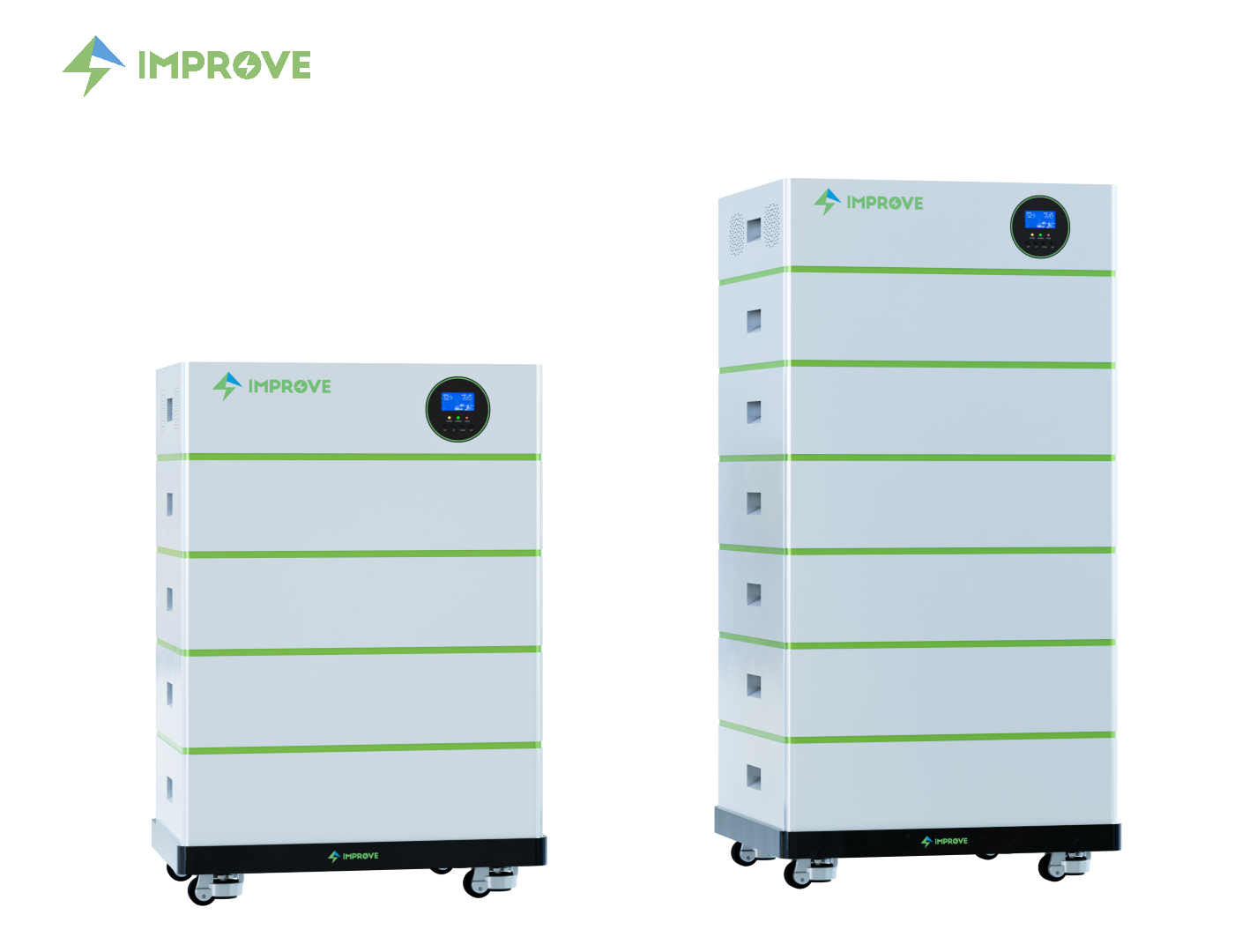
Low voltage batteries typically have a voltage of below 100V. As the batteries have less pressure, they also have less power. As low voltage batteries discharge energy slower, these systems tend to have trouble covering start-up loads, requiring additional assistance from the grid or solar to supply instant power. This is one of the major flaws of low voltage systems. However, Low voltage systems are much easier to install and upgrade. You will often see multiple batteries linked together in parallel (if the rated voltage is compatible with the inverter) or in series to increase the overall voltage. They tend to have a smaller physical footprint, are cheaper to manufacture and are in some ways safer. As LV batteries have a higher current, they can continuously run without exceeding temperature limits, resulting in a cooler power supply and optimal charge time.
Although LV batteries need more connections to provide more power, Low voltage battery systems are great for off-grid systems, and users looking for large capacity potential with a medium to low energy demand.
However, a low voltage and high voltage battery system isn’t just about the battery you choose. The inverter also plays a vital role. Each inverter comes with a Battery voltage range [V], this voltage indicates whether an inverter can manage a high or low voltage battery. Typical battery inverters that are rated at 48V or above can handle both HV and LV batteries.
Cheaper to manufacture and install.
LV Batteries are Compact and Scaleable.
Not as suitable for users with a high energy demand due to slower charge and discharge.
HIGH VOLTAGE BATTERIES
High voltage batteries are a recent phenomena within the solar industry. Compared to LV batteries, high voltage solar batteries offer a higher discharge rate to support higher load demands. High voltage battery systems are usually rated around 400V. These systems can charge and discharge faster than the low voltage batteries and can cover those quick demand surges from starting equipment. If we take this back to the water tank analogy a High voltage battery is a high “pressure” battery. Which means as the pressure in the battery is high, as soon as the battery is switched on there is a burst of initial energy, resulting in a quicker discharge of energy or water from the hose. Because the voltage is so high in a HV battery, they do not require larger conductors.
In a high voltage battery system, the inverters tend to allow for less battery connections (around 3 batteries), however the individual batteries themselves are much larger in capacity. What’s more, when commissioning a home solar PV system with a high-voltage battery you can increase the efficiency of the entire system. This is because the DC bus voltage is normally around 300–500V and the current running to the inverter from the battery is significantly lower. In contrast, when you choose a low-voltage battery, the inverter needs to work harder to reduce the input voltage of 300–500V to below 100V. This results in a loss of energy, and a less efficient system.
High voltage batteries are perfect for households or commercial properties with exceptionally larger energy demands.
SO WHICH SOLAR BATTERY IS RIGHT FOR YOUR PROJECT?
Isn’t there any merit in low-voltage batteries? Surely the low-voltage battery has its advantages, such as easy installation and expansion, lower prices, and more mature and stable BMS technology. That’s why the market still provides low-voltage batteries. Customers can choose whatever fit-for-purpose solutions they wish.
Hopefully from this blog you would have gained a more in depth insight into the difference between high voltage and low voltage batteries. In the solar industry, you will see that even though there is a rise in HV batteries, most solar brands will provide users with both options. As it is really what solution is fit for purpose. If you are a home owner looking to install the best solar battery, get in touch with our green team. We have over 12 years of experience manufacturing both High voltage and Low Voltage solar battery systems. Call us today www.improvecn.com


